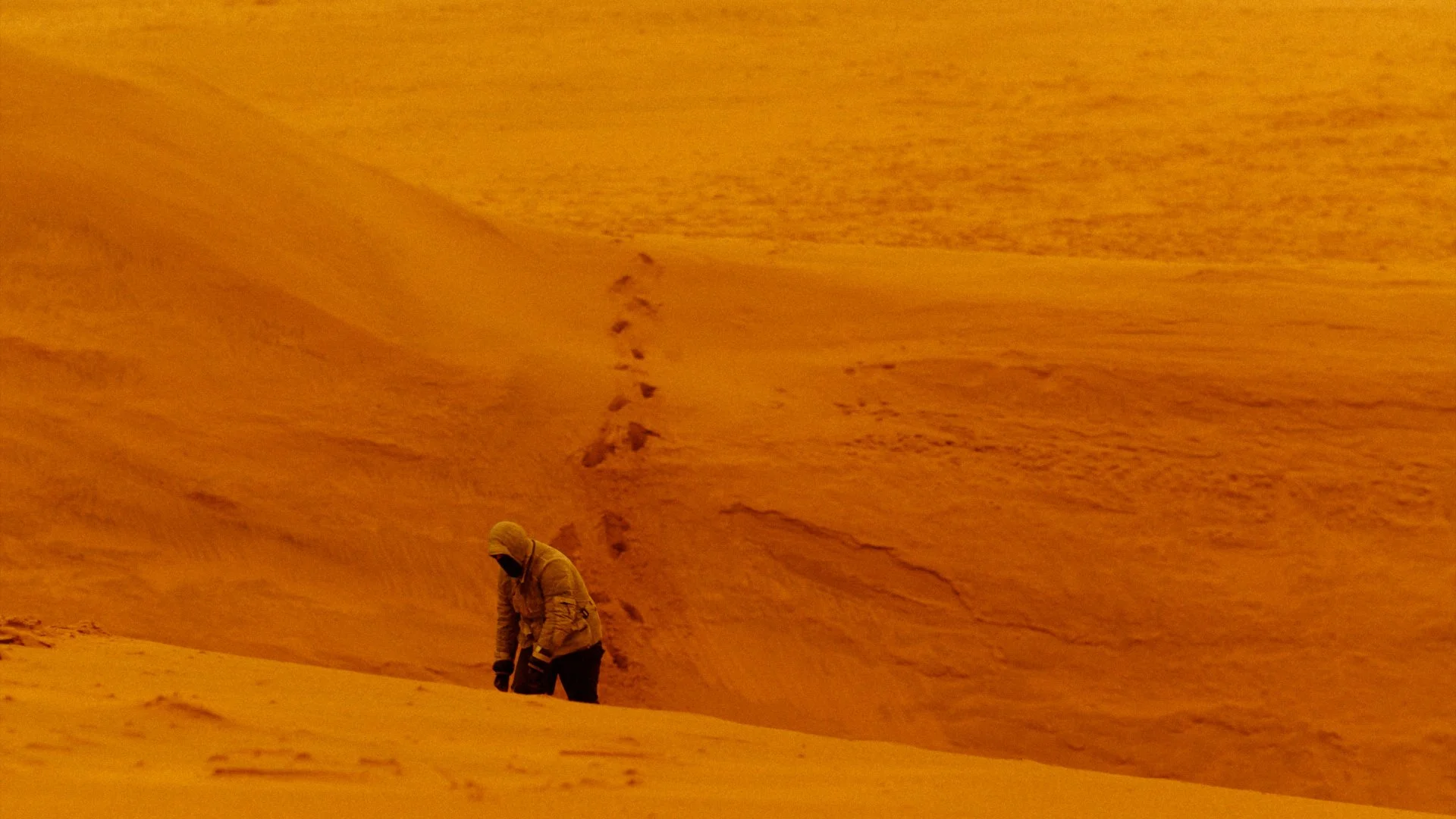Ferhat Gurini: The Lost Generation
Conero Film + ADV Director Spotlight
Ferhat Gurini on The Lost Generation: humanising the unbearable tension between resilience and despair
As Conero Film + ADV 2025 soon approaches (September 4–7), the festival continues to affirm its role as a platform where creativity and conscience converge. Among the works in this year’s Official Selection is The Lost Generation, a two-minute, powerful film by emerging director Ferhat Gurini, produced by Bacon for the humanitarian brand Generation Gaza.
Set in the desert, the film closely follows a lonely wanderer reckoning with personal loss in a space between reality and memory. Made from a mix of new and archival footage, it was inspired by the viral 2024 interview with the brother of Shaaban al-Dalou, who was burned alive in his tent during an airstrike. The result is a devastating and poetic cry for peace.
Read our interview with Ferhat, in which we discuss his path from politics to film, the making of The Lost Generation, and the role of art in humanising tragedy.
The Lost Generation is a call for peace and humanitarian aid. What was the starting point for you? Was there a specific story or moment that became the emotional core of the project?
I got the idea from watching the interview of Shaban al-Daalu’s brother (Palestinian who burned alive in his tent after an Israeli airstrike). At first he seemed kind of cynical, listing numbers and dates over emotions and what he felt, but as the interview progressed, I realized it was the desensitization to pain because of the daily hurt. It was a weird mix of resilience of despair, and that was kind of what I wanted to capture in the Lost Generation.
You studied International Relations before moving into journalism, NGOs, and eventually filmmaking. What drew you from policy work into cultural storytelling?
For me, I always felt academia had a very limiting language. You are schooled to adopt a certain tone and language, and quite early on in university I was punished for expressing myself with my natural tone. It never truly felt like my voice. I guess for film making, I’ve found that the same voice I’ve had to use energy on constraining, I can let free and it allows me to focus more on the substance.
“It is not heroic. It is not optimistic. It is silent, stubborn and painful.”
How do you see film as a medium contributing to humanitarian conversations in ways that journalism or policy sometimes cannot?
Journalism, policy and academia are all important fields that provide the deep research and fact finding which films dealing with humanitarian issues rely on. But I think they fall short in claiming a neutrality or lack of bias that are always embedded within them. Filmmaking feels more honest, when it’s good. Also, it’s also alot more intimate than the written word, because you can see and hear the subjects in focus.
You beautifully blend documentary fragments with dreamlike sequences in this film. How intentional was that balance, and what did it allow you to express about suffering and memory?
The intention was always to wash away the codes of fiction and reality. Truth will always be madder than fiction, and by blending in archive footage, we were hoping to imbue the film with real memory.
The Lost Generation is your first film made within a larger production setup. How do you approach collaboration as a director while still protecting the personal vision behind your work?
My starting point is always that everyone involved in the project is here because they care about their craft, which was also very much the case for this project.
Speaking of, I’m really grateful for the team that came together around this film. Everyone pulled their weight, and it was ultimately because of their hard work that the vision grew into something bigger than I could have achieved alone.
Micro-management is the biggest killer of motivation for me, so I assume that’s also the case for others. For me it’s more about sketching the broader narrative and idea, and letting it be up to the team to interpret it (of course within certain limits). My most important role is clearly communicating my message and the visual language, I’ve found out.
What do you hope audiences at Conero take away from your film?
I hope that audiences walk away with a sense of proximity, that what is portrayed isn’t distant or abstract, but lived and tied to real human memory.
Director: Ferhat Gurini
Production Company: Bacon
DoP: Tobi Aman Manczak
Producer: Alicia Moon
Executive Producer: Samuel Cantor
Editors: Thomas Irving, Frederik Marbell
VFX: Viktor Gelbek, Emanuel Kambo / Bacon XO
Colorgrade: Hannibal Lang / BaconX
Sound Design: Mads Bergland
Music: Coolpacc
Production Design: Travis W. Sproul
1st AC: Anders Bévort
Gaffer: Andreas Moeslund, David Sizemore
Camera Assistant: Hussein Ali Kazem
Production Assistants: Sienna Bruun, Anja Giele
Best Boy: Mathias Hornum
PD Assistant: Sara De Gang
Graphics & Research: Jacky Su, Isabella Zibert
Communications: Lasse Cato
Special thanks to:
Storyline Rental, The Lab, Claudia's



